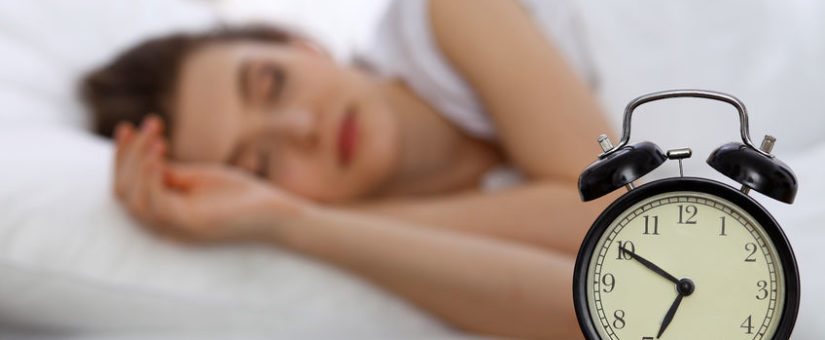
Sleep: The Most Overlooked Factor to Health and Longevity
- Posted by admin
- On May 10, 2018
- 0 Comments
By Dr. David Brown
Sleep is a precious commodity that can be hard to come by for many. In this digital age where information, entertainment, and communication are literally at the fingertips, it is easier than ever to fall (or even jump) into a pattern of sleepless nights and long, tiring days. These irregular sleep habits affect more than just energy levels. Unfortunately, they can also be very damaging to overall health. Sometimes these issues can be addressed and corrected at home with simple lifestyle changes. Other times the help of a healthcare professional might be necessary.
Types and Causes of Insomnia
The word insomnia comes from the Latin words, in, meaning “no,” and somnus, meaning “sleep.” Sleep deprivation is a real problem for many people. In fact, according to one study, “About 30% of all adults complain of occasional insomnia and 10% of chronic insomnia.” While among the general population, rates for chronic insomnia are in that 10-15% range, the rate increases in certain populations such as the divorced or widowed.
There are two types of insomnia: sleep-onset (the inability to fall asleep) and sleep-maintenance (the inability to stay asleep). Some of the common causes for sleep-onset insomnia are anxiety, tension, emotional arousal, and caffeine. Sleep-maintenance insomnia, on the other hand, is often caused by depression, sleep apnea, hypoglycemia, or drugs. Both types could also be caused by environmental changes, pain or discomfort, and alcohol.
Normal Sleep Patterns
Sleep requirements and patterns change with age. A typical one year old sleeps about 14 hours a day. At 5, the requirements have decreased to approximately 12 hours a day. By the time an individual reaches adulthood, sleep makes up only about 1/3 of the 24 hour day, about 7-9 hours.
There are two types of sleep, REM (Rapid Eye Movement) sleep and Non-REM sleep. Non-REM sleep precedes REM sleep and has four stages. While progressing through each stage, sleep deepens and brain wave activity slows down until all the sudden REM sleep is reached, and the brain gets very active again. The eyes begin to move rapidly and dreaming occurs. The first REM cycle is typically only 5-10 minutes long and takes place about 90 minutes into sleep.
This cycle repeats itself five or more times each night for most adults. The time spent in REM sleep increases with each cycle with the final REM period lasting about an hour. REM sleep makes up only about 20% of adult sleep cycles but approximately 50% of infants’ sleep cycles.
Importance of Sleep
Adequate sleep is critical for long term health. During sleep, many important physiological processes occur, but two stand out as possibly the most crucial: the secretion of growth hormone and the removal of free radicals in the brain.
Growth hormone is secreted in small amounts during the day, but the majority of the secretion of this anabolic hormone occurs at night. Many call this hormone the “anti-aging” hormone as it stimulates the processes of tissue and liver regeneration, muscle tissue formation, fat breakdown, and blood sugar regulation, just to name a few. That is to say it is responsible for converting fat to muscle.
During waking hours, the brain accumulates free radicals. While asleep, the body is able to remove these free radicals. This antioxidant effect that sleep has is very important in minimizing damage to the neurons. If an individual goes a day or two without sleeping, the brain can usually fully recover. But research shows that chronic sleep deprivation can speed up aging of the brain.
Types of Therapy to Consider
Exercise:
Exercise not only promotes overall health, but it also can improve sleep quality. In order to receive the most benefit in regards to sleep patterns, exercise should not be done right before bed. Morning or early evening is best. Twenty minutes of moderate intensity aerobic exercise normally suffices.
Progressive Relaxation:
Progressive Relaxation is a simple technique that teaches the difference between muscle relaxation and muscle tension in order to aid in deep full body relaxation. The process involves forcefully contracting each muscle of the body one at a time for 1-2 seconds and then relaxing that muscle. It starts with the muscles of the face and neck and progressively works through each muscle of the body down to the feet. The practice can then be repeated two or three times or until sleep occurs.
Nocturnal Glucose Levels:
Low blood sugar can result in sleep-maintenance insomnia. Since the brain requires a constant, steady supply of glucose, it is sensitive to decreasing blood glucose levels. When the blood glucose drops below optimal levels, the adrenal glands release cortisol which wakes up the brain. Eating a snack before bed that consists of protein and healthy fat can help regulate the blood sugar and prevent night time waking. Be sure to avoid simple carbohydrates and sugar as it will cause an initial rise and then sudden drop in blood glucose.
Serotonin and Melatonin:
Serotonin and melatonin are natural hormones produced by the body that are both important for achieving regular sleep patterns. Abnormal levels of these hormones and their precursors and co-factors can greatly disrupt these patterns. Although supplemental melatonin has become a popular OTC sleep aid, it is often misused as it has only been shown to work if melatonin levels are actually low. (As discussed above, not all insomnia is caused by low melatonin.) I do not recommend taking supplemental melatonin because supplementation can result in decreased natural production and throw off the natural circadian rhythm if taken on a regular basis. Therefore, if you suspect a chemical imbalance within your body as the root cause of your insomnia, it is best to work with a health care professional to determine the best course of action.
Botanicals and Homeopathy:
There are many natural remedies that can aid in sleep in the short term as well as promote regulation of sleep-wake cycles over the long term. Like the hormone therapy above, herbal and homeopathic treatments should be directed by a health care professional.
Chiropractic Care:
Many times insomnia is caused by pain or discomfort within the body. In these cases, chiropractic care can help alleviate the cause of the pain or discomfort and therefore allow for better sleep.
If you or a loved are suffering from sleep difficulties, try some of the suggestions listed above or consult with our office for further information.

David Brown, DC, DIBAK



